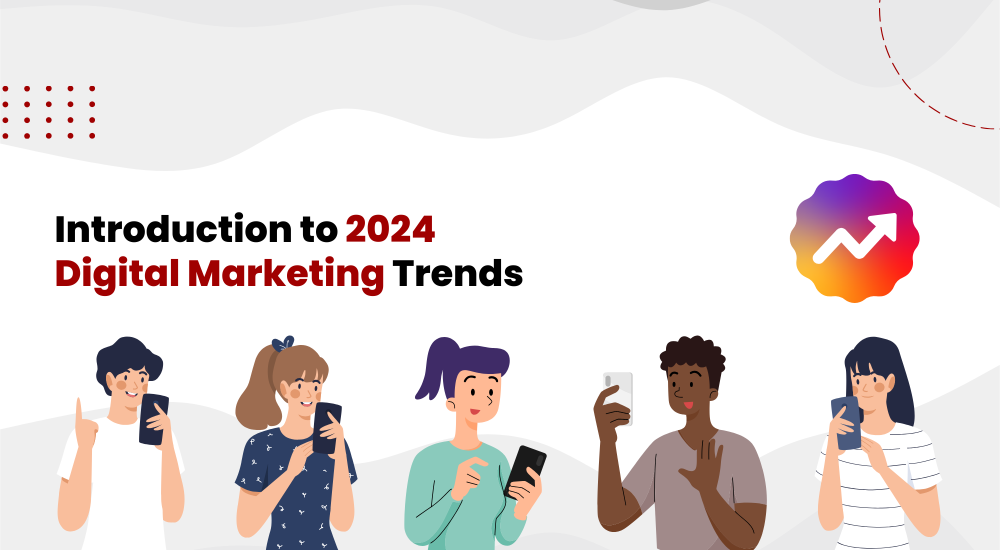Nsongurua Abasiakara is a digital marketing lead at 9 Payment Service Bank (9PSB). A seasoned marketing professional with an exceptional track record in digital and growth marketing, product marketing, and consumer behaviour analysis for successful and growing brands.
Nsongurua, is also an associate member of the Chartered Institute of Marketing UK, with over six years of experience in digital marketing working across different industries particularly FinTech startups, where she has spent most of her career driving growth through excellent campaign executions.
She is adept at using brand storytelling, digital strategies, and marketing technology to drive
measurable business goals, including lead generation, acquisition, and customer loyalty with tangible results to show across brands such as, First bank, Zedvance, Fast Credit, 9PSB etc.
In this interview, Nsongurua demonstrated her passion about championing positive brand experiences for customers while driving profitability and believes in the age-old mantra that “Customer Is King”.
TE: Nsongurua, what are some key trends you see shaping the digital marketing landscape today?
Nsongurua Abasiakara: Thank you for this question. First, in this age, customers expect personalized experiences, leading to targeted content, tailored offers, and customized communication based on data analytics.
Businesses should also understand the popularity of video content. This continues to rise, with platforms like TikTok, YouTube, and Instagram Reels driving engagement and brand awareness.
With the advent of artificial intelligence (AI) voice search optimization, there is an increased use of voice assistants like Siri and Alexa. So, businesses are optimizing their content and SEO strategies for voice search queries. Again, AI and Machine Learning are technologies being used for data analysis, automation, chatbots for customer service, and predictive analytics to enhance marketing strategies and decision-making.
We are also seeing ephemeral content; that is content that disappears after a short period, like Stories on Instagram and Snapchat, is gaining traction for its authenticity and urgency.
Influencer marketing is another key trend. Collaborating with influencers to reach niche audiences and build trust and credibility is a prevalent trend, especially on social media platforms.
Brands are leveraging Augmented Reality (AR) and Virtual Reality (VR) for interactive experiences, product visualization, and immersive storytelling to engage customers.
These trends highlight the importance of staying updated with technology, understanding consumer behaviour, and adapting marketing strategies to remain relevant and competitive in the digital landscape.
TE: How important is content marketing in a digital marketing strategy, and what are some best practices for creating compelling content?
Nsongurua Abasiakara: Of course, content marketing plays a crucial role in a digital marketing strategy for several reasons.
First, building brand awareness is very important. High-quality content helps businesses establish their brand identity, values, and expertise in their industry. It allows them to showcase their unique selling propositions (USPs) and differentiate themselves from competitors.
Secondly, valuable and relevant content pulls in organic traffic to the website through search engines, social media shares, backlinks from other sites, and word-of-mouth referrals. This traffic can be further nurtured into leads and conversions.
Thirdly, educating and informing customers – Content marketing provides an opportunity to educate and inform potential customers about products, services, industry trends, best practices, and solutions to their problems. This helps build trust and credibility, leading to stronger relationships with customers.
Also, businesses engage digital marketing techniques for lead generation. Content assets such as ebooks, whitepapers, guides, webinars, and case studies can be used as lead magnets to capture contact information and generate leads. These leads are then nurtured through targeted content and marketing campaigns.
Engagement and interactivity must be there. Engaging content formats like videos, infographics, interactive quizzes, and polls encourage audience interaction, shares, comments, and likes. This engagement helps expand reach, foster community, and increase brand loyalty.
Supporting Sales and Conversions through social media amplification – Content marketing plays an important role throughout the customer journey, from awareness to consideration to decision-making. Well-crafted content addresses customer pain points, provides solutions, and influences purchasing decisions, leading to increased sales and conversions.
Overall, content marketing is integral to a digital marketing strategy as it drives brand visibility, engages audiences, educates customers, supports SEO efforts, generates leads, and ultimately contributes to business growth and success.
TE: Can you share insights on effective social media strategies for businesses?
Nsongurua Abasiakara: You must start by defining clear goals and objectives for your social media strategy, whether it’s increasing brand awareness, driving website traffic, generating leads, or improving customer engagement.
Understand your target audience’s demographics, preferences, and behaviour on social media platforms to create content that resonates with them and drives engagement.
Focus on the social media platforms where your target audience is most active. For example, if you’re targeting a younger demographic, platforms like X, Instagram, TikTok, and Snapchat might be more effective.
You must maintain a consistent brand voice, tone, and visual identity across all social media channels to build brand recognition and trust among your audience.
TE: What role does SEO (Search Engine Optimization) play in digital marketing, and what are some strategies for improving SEO performance?
Nsongurua Abasiakara: Search Engine Optimization (SEO) plays a critical role in digital marketing by driving increased visibility.
By optimizing for specific keywords related to the business, SEO attracts targeted traffic consisting of users actively searching for products, services, or information related to the industry. This targeted traffic is more likely to convert into leads or customers.
Websites that rank higher in search results are often perceived as more credible and trustworthy by users. Good SEO practices, such as optimizing content, improving user experience, and earning quality backlinks, contribute to building authority and trust with both users and search engines.
Compared to paid advertising, SEO is a cost-effective long-term strategy. Once a website achieves high rankings for relevant keywords, it can continue to attract organic traffic without ongoing ad spend, resulting in a higher return on investment (ROI) over time.
You have to consider the user experience (UX) improvement. In competitive industries, effective SEO strategies can provide a competitive advantage by helping a website stand out from competitors, attract more traffic, and capture a larger market share.
Overall, SEO is essential in digital marketing as it drives organic traffic, improves website credibility, enhances user experience, provides valuable data insights, and contributes to long-term marketing success.
TE: Email marketing remains a powerful tool. What are some strategies for creating successful email marketing campaigns?
Nsongurua Abasiakara: Creating a successful email marketing campaign involves several key strategies to engage subscribers, drive conversions, and achieve marketing objectives. Here are some strategies for creating a successful email marketing campaign:
Again, you start by defining clear goals for your email campaign; whether it’s promoting a product/service, increasing website traffic, generating leads, nurturing leads, or retaining customers. Clear objectives help shape your campaign strategy and measurement criteria.
Focus on building a quality email list of subscribers who have opted in to receive emails from your brand. Use opt-in forms, lead magnets, gated content, and incentives to attract subscribers interested in your offerings.
TE: With the rise of mobile usage, how should businesses optimize their digital marketing efforts for mobile users?
Nsongurua Abasiakara: With the increasing prevalence of mobile usage, businesses should focus on optimizing their digital marketing strategies to cater to mobile users effectively.
I can’t overemphasize the need for mobile-friendly website. Ensure your website is mobile-friendly with responsive design, fast loading times, easy navigation, and clear CTAs (Call-to-Actions). Mobile users should have a seamless and enjoyable browsing experience across devices.
An smartphone user surfing the Internet
Create content that is optimized for mobile viewing, including shorter paragraphs, bullet points, clear headings, legible fonts, and visually appealing images and videos. Optimize multimedia content for fast loading on mobile devices.
Design and optimize email campaigns in a way that serve for mobile devices, including responsive email templates, clear CTAs, concise content, mobile-friendly images, and optimized subject lines and preheaders.
Leverage location-based marketing strategies to target mobile users based on their geographic location. Use geo-targeted ads, local SEO tactics, location-based offers, and proximity marketing to reach relevant audiences.
Invest in mobile advertising campaigns across platforms like Google Ads, social media platforms (e.g., Facebook, Instagram, Twitter), and mobile ad networks. Use responsive ad formats, compelling visuals, and targeted messaging to engage mobile users.
Use analytics tools to track user behaviour, engagement metrics, conversion rates, and other key performance indicators (KPIs) for mobile marketing efforts. Analyze data insights to optimize campaigns, improve user experience, and drive better results.
By implementing these mobile optimization strategies, businesses can effectively reach and engage mobile users, enhance user experience, drive conversions, and stay competitive in today’s mobile-driven digital landscape.
TE: Data privacy and security are increasingly important. How can businesses ensure they are compliant with regulations while still effectively utilizing customer data for marketing purposes?
Nsongurua Abasiakara: There are various ways businesses can comply with data privacy regulations and ensure data protection during digital marketing.
Stay informed about data privacy regulations relevant to your business, such as the Nigeria Data Protection Law (NDPR), General Data Protection Regulation (GDPR) in Europe, and others. Understand the requirements, rights of individuals, and obligations for data handling and processing.
Be transparent with customers about data collection practices, purposes of data processing, and how their information will be used. Obtain explicit consent from individuals before collecting, storing, or using their personal data for marketing purposes. Use clear and easily accessible privacy policies and consent forms.
Collect and process only the necessary data required for specific marketing activities. Avoid collecting excessive or irrelevant data that is not essential for your marketing purposes. Implement data minimization principles to reduce privacy risks.
Implement robust data security measures to protect customer data from unauthorized access, breaches, and cyber threats. Use encryption, secure servers, access controls, firewalls, and regular security audits to safeguard sensitive information.
Where possible, anonymize or pseudonymize personal data to reduce the risk of identification and enhance data privacy.
Anonymization removes personally identifiable information, while pseudonymization replaces identifiable data with pseudonyms to protect privacy.
Also establish data retention policies and procedures to determine how long customer data will be retained based on legal requirements and business needs. Periodically review and securely delete outdated or unnecessary data to minimize privacy risks.
If using third-party service providers for data processing or marketing activities, ensure they comply with data protection regulations, have adequate security measures in place, and sign data processing agreements (DPAs) outlining responsibilities and obligations regarding data privacy.
By adopting these practices, businesses can demonstrate their commitment to data privacy, build trust with customers, mitigate risks of non-compliance, and foster a positive reputation in the digital marketplace.
TE: What are some challenges businesses face in digital marketing, and how can they overcome them?
Nsongurua Abasiakara: There are number of challenges businesses face. First, the digital landscape is highly competitive, with businesses vying for attention and market share. Standing out from competitors and capturing audience attention amidst the noise can be challenging.
Search engine and social media algorithms frequently change, impacting organic reach, visibility, and engagement. Keeping up with algorithm updates and adapting strategies accordingly is crucial for maintaining performance.
Consistently creating high-quality and engaging content that resonates with the target audience can be demanding. Content fatigue, lack of creativity, and maintaining content relevance are common challenges.
And measuring ROI – determining the return on investment (ROI) of digital marketing efforts, including campaigns, channels, and strategies, can be complex. Attribution modeling, tracking conversions, and accurately measuring performance metrics are ongoing challenges.
Limited budget allocation for digital marketing activities can restrict the scope of campaigns, resources, and tools available. Prioritizing initiatives and maximizing ROI within budget constraints is a common challenge.
Addressing these challenges requires strategic planning, flexibility, continuous learning, data-driven decision-making, collaboration across teams, and a customer-centric approach to digital marketing.
TE: Looking ahead, what do you think will be the next big thing in digital marketing?
Nsongurua Abasiakara: Predicting the next big thing in digital marketing is always a bit speculative, but based on several trends and technologies that are gaining momentum and could shape the future of digital marketing I think AI and machine learning algorithms are becoming more sophisticated, enabling hyper-personalized marketing campaigns tailored to individual preferences, behaviour, and context.
This includes personalized content recommendations, product recommendations, dynamic pricing, and real-time personalization across channels.
Also, voice search optimization; with the increasing adoption of voice assistants like Siri, Alexa, Google Assistant, and smart speakers, optimizing content and SEO strategies for voice search queries will be crucial. Businesses will focus on voice search-friendly content, conversational keywords, and local voice search optimization.
We are seeing an era of interactive and immersive content such as quizzes, polls, surveys, 360-degree videos, augmented reality (AR), and virtual reality (VR) experiences are gaining popularity for their engagement and storytelling capabilities. Businesses will invest in creating immersive brand experiences to capture audience attention.
With increasing concerns about data privacy and regulations, businesses will prioritize privacy-first marketing strategies that respect user privacy, obtain explicit consent, offer transparent data practices, and prioritize data security.
Privacy-enhancing technologies (PETs) and decentralized marketing solutions may gain traction.
Live video content continues to be a powerful tool for real-time engagement, storytelling, product launches, webinars, Q&A sessions, and behind-the-scenes glimpses.
Businesses will leverage live streaming platforms and interactive features to connect with audiences authentically.
Social media platforms are also evolving into e-commerce hubs, integrating shopping features, shoppable posts, in-app checkout options, and personalized product recommendations. Social commerce will continue to grow, blurring the lines between social media and online shopping.
As environmental concerns become more prominent, businesses will focus on green marketing initiatives, sustainable practices, eco-friendly products, and corporate social responsibility (CSR) efforts. Green branding and messaging will resonate with eco-conscious consumers.
Influencer marketing will evolve beyond traditional endorsements to include nano-influencers, micro-influencers, and employee advocacy programs. Authenticity, transparency, and long-term relationships with influencers will be prioritized.
Non-Fungible Tokens (NFTs) and blockchain technology are gaining attention for their potential applications in digital marketing, including digital asset ownership, tokenized loyalty programs, decentralized advertising networks, and verified authenticity for branded content.
These trends indicate a shift towards more personalized, interactive, ethical, and technology-driven digital marketing strategies that prioritize customer experience, engagement, and value creation. However, the digital landscape is dynamic, and new innovations may emerge, shaping the future of digital marketing in unforeseen ways.
TE: Thank you very much Nsongurua for your time
Nsongurua: Thanks very much for having me.
The post Q&A with Nsongurua Abasiakara on the Trends and Tech Impact on Digital Marketing appeared first on Tech | Business | Economy.



